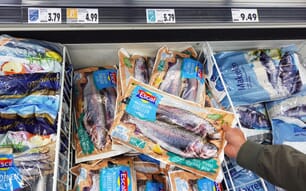WWF expressed deep concern at CCAMLR member nations inability this year to resolve differences over the protection required for Antarcticas oceans.
The expectation was high across the world for large marine protected areas to be created in the Ross Sea and East Antarctica in 2012. We recognise the great efforts of those member nations that have invested so much in driving the MPA science programs and proposals. After years of scientific work, and two weeks of intensive negotiations, to see the talks break down is greatly concerning, said WWF spokesperson Paul Gamblin.
CCAMLR nations have taken the unusual step to meet again at a hastily-organised summit in Germany next year to seek agreement on the MPAs.
The decision to call an extra meeting of the Commission to deal with this issue next year demonstrates the gravity of the situation and gives us some hope that a breakthrough can still be found, Mr Gamblin said.
WWF has directly supported years of scientific work to underpin rational MPA creation in the Southern Ocean. The special meeting in 2013 must be the last word on the proposals for the Ross Sea and East Antarctica. Then the work must continue on the rest of the MPA network. Time is slipping away.
In 2010, WWF awarded CCAMLR its highest accolade the prestigious Gift to the Earth award - in recognition of its commitment to establish the worlds biggest marine protected area system around Antarctica by 2012.
CCAMLR received the Gift to the Earth because it made a serious commitment to protect Antarcticas seas in a system of MPAs by 2012. It has missed this deadline but now it must focus on the work of meeting the worlds expectations to protect Antarcticas critical habitats for wildlife, including seals, penguins, whales and seabirds.
Negotiations Break Down on Antarctic Marine Protection
GLOBAL - Governments from around the world have been unable to strike agreement on proposals to create large marine protected areas (MPAs) for Antarcticas fragile marine environments during this fortnights meeting of the Commission for the Conservation of Antarctic Marine Living Resources (CCAMLR).
by Lucy Towers


